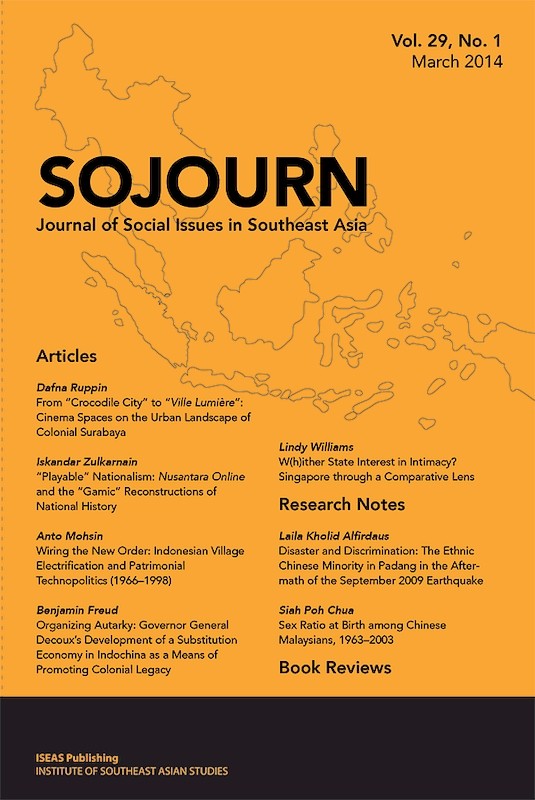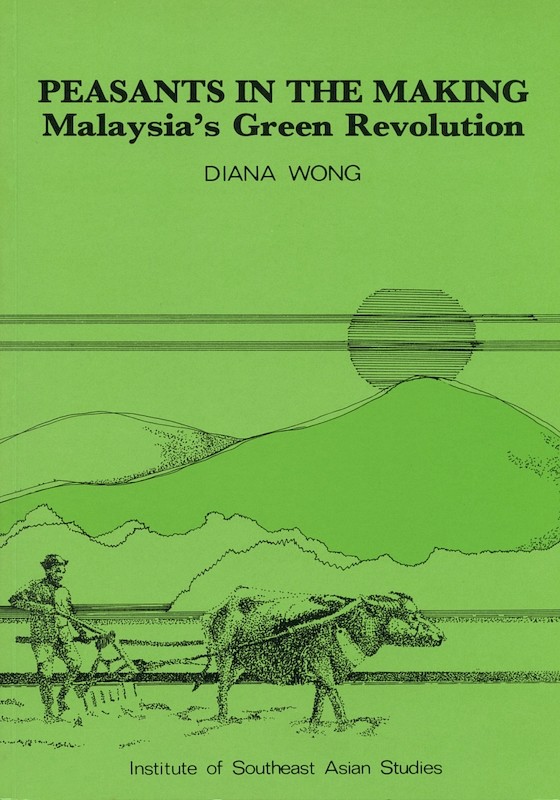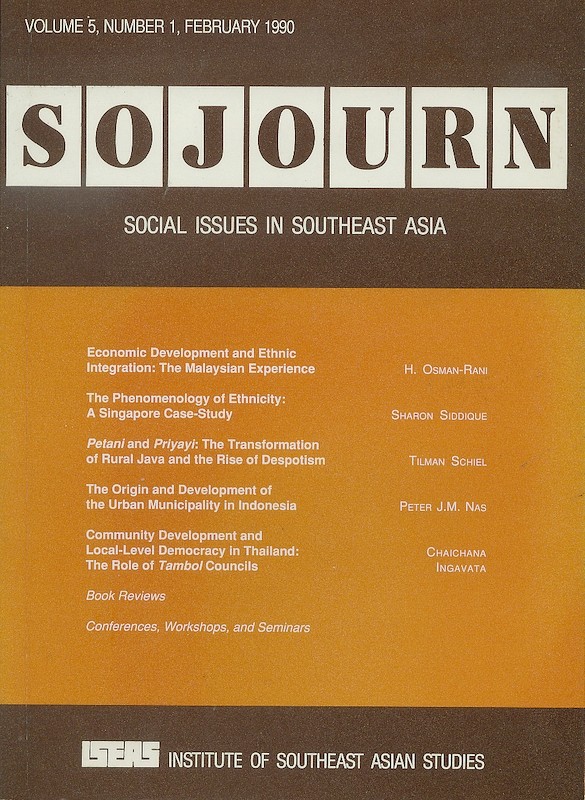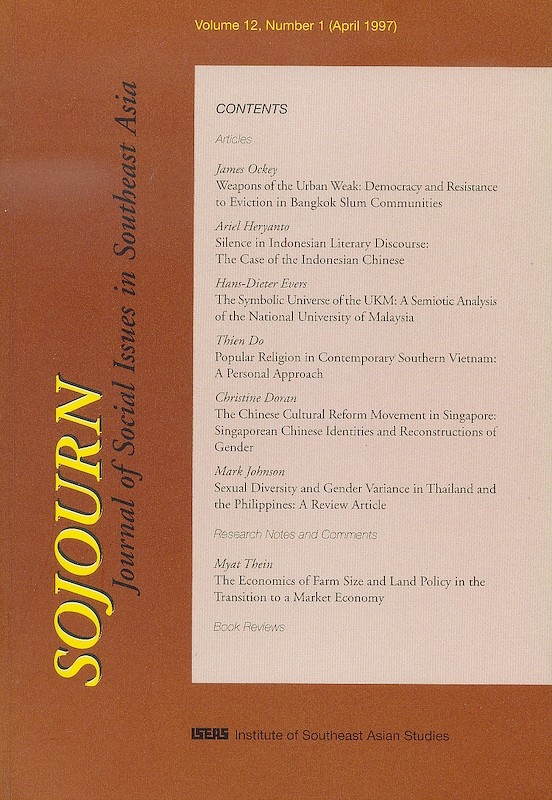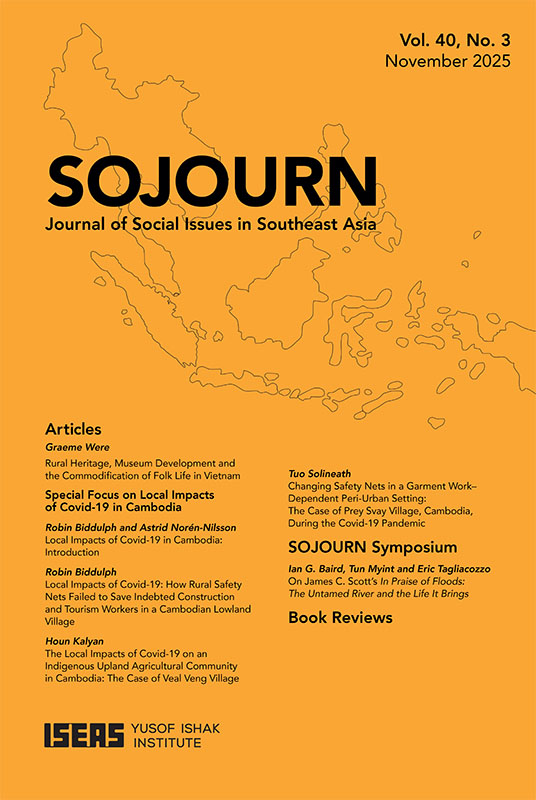SOJOURN: Journal of Social Issues in Southeast Asia Vol. 4/1 (Feb 1989). Special Focus on "Peasants and Cities, Cities and Peasants: Rethinking Southeast Asian Models"
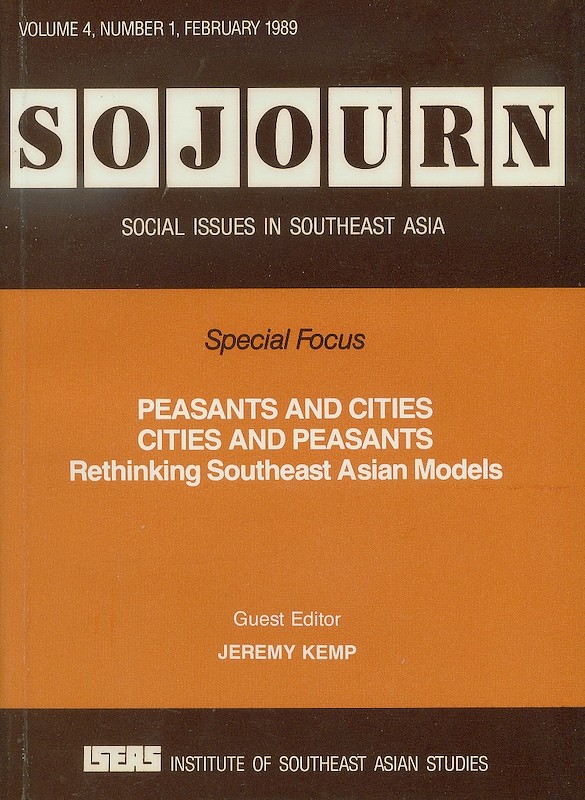
Jeremy Kemp, editor
Date of publication:
February 1989
Publisher:
Institute of Southeast Asian Studies
Number of pages:
156
Code:
SJ4/1
Contents
-
Preliminary pages
-
Introduction to the Special Focus issue on "Peasants and Cities, Cities and Peasants: Rethinking Southeast Asian Models", by Jeremy Kemp, author
- ARTICLES
-
Peasants and Cities: The Cultural and Social Image of the Thai Peasant Village Community, by Jeremy Kemp, author see abstractThe Thai peasant village community is an ideological construct rather than an empirical reality. Failure to recognize this has resulted in a reification and objectivization of rural social organization both past and present. It has also supported a number of false dichotomies such as between peasants and cities which distort the real nature of relationships. The paper examines the background to the application of these ideas with reference to their consequences for social analysis and planning, together with their more direct impact on rural social organization and relations with urban centres of power.
-
Town and Countryside in Indonesia: A Sceptic's View, by P J M Nas, author see abstractThis article commences with a short overview of background thinking concerning the opposition between town and countryside and a number of arguments supporting the sceptic's view. These concepts are then questioned with respect to their general relevance and explanatory power with regard to migratory movements. It is argued that such concepts should not just be considered reflections of social reality but perceived as myths used as tools for modelling society.
-
Modernization as Paganization: How to Make a "Traditional" Peasant World, by Tilman Schiel, author see abstractOur view of peasant societies is distorted by an urban bias which has existed since antiquity. European ideas of civilization are influenced by urban models. Just as the city is seen as civilized, so is the countryside viewed as barbaric. Again, since antiquity, European civilization was juxtaposed to Asiatic barbarism. The micro-level of the despotic rural household-economy corresponded in this view to "oriental despotism" on the macro-level. Both biases combined to form a single model according to which the colonial powers shaped their colonies. The attempt of the Dutch to restore an Asiatic rural society on Java thus resulted in the creation of invented tradition.
-
Urban or Agrarian? The Modern Thai State, by Rudiger Korff, author see abstractThe paper repudiates the conventional "rural" model of Thai society for one focused on the capital, Bangkok. Although Thailand is obviously far more than Bangkok, an analysis of Thai society has to take into consideration the important role of the metropolis in the processes of economic, political, and social change. Contemporary political and economic power is extraordinarily concentrated there. However, this paramount role of the capital is not just the result of modernization but intrinsic to older forms of the Thai state.
-
Rise and Fall of Provincial Elites in the Philippines: Nueva Ecija from the 1880s to the Present Day, by W G Wolters, author see abstractThe position of local and provincial elites in the Philippines has changed in character. At the beginning of the century the landed elite was relatively autonomous, keeping the state weak and using it to reinforce its position. Since the 1950s a new elite of mercantile entrepreneurs has emerged, dependent on state credit and political protection. Under the martial law regime in the 1970s the state ceased to be an extension of regional elites and acquired the features of a separate level of organization. The transition to the Aquino administration has led to some degree of decentralization. However, provincial politicians are more than ever interested in finding their slot in the central state apparatus.
-
The Peasant-Urban Interface in Malaysia, by W D Wilder, author see abstractMalaysia's social complexion tends to be obscured by the description "plural society"; in contrast, Malaysia is here viewed as a nation of new communities. Three cases, from both Malaysia and Singapore, are used as lessons illustrating the recent formation of novel social structures. State policies, in both Malaysia and Singapore, not only lead in changing social and economic patterns of preset and former peasants, specifically Malays, but also control those patterns in ever-increasing degree.
-
Urban Idioms in a Village World: Power and Communication in Rural Java, by Frans Husken, author see abstractThe article begins with an impression of the linguistic dimension of the urban-rural cleavage in Java by presenting the urban perception of the village world as expressed in the bureaucratic, pseudo-sacral, or ritualistic language of government officials. The mutual incomprehension resulting from this cleavage and from other symbols and paraphernalia of the development discourse is a major factor in perpetuating the distance between "State" and "village". This distance is functionally ambivalent: on the one hand, it contradicts ideals of "participatory development" as expressed in government ideology; on the other, it appears to support an underlying concern of "New Order" government policy, namely, the political control of the countryside.
-
Political Elites in a Minahasan Village, North Sulawesi, Indonesia, by Ulrich Mai, author see abstractVillage leaders in Minahasa endeavour to render the outside world understandable to village members and, at the same time, open up the village to modern urban and state influences. In doing so, incumbents of official positions tend to represent external interests, local men of repute are more likely to share common interests with villagers, while the headman must demonstrate both solidarity with villagers and loyalty to external authorities. Local leaders neither function as the state's mouthpiece, nor support conflicts with it. Sometimes offering protection against external interference, they facilitate gradual adjustment and selective participation in change, thereby supporting the survival of local institutions.
-
Selling for the World Market: The Peasant Petty Trader, by Suparb Pas-Ong, author see abstractThe activities of petty traders are frequently considered solely in the context of their immediate locality and without reference to the wider society. Along the Thai-Malaysian border this trade is part of the world market economy crossing national boundaries and constituting an important system of social articulation beyond the confines of the village and local market. Significant linkages between urban officials and rural traders also arise from the former's dependence on bribes extracted from those involved in smuggling goods between the two countries.
- RESEARCH NOTES AND COMMENTS
-
The Village Revisited: Community and Locality in Southeast Asia., by Tine G Ruiter, Henk Schulte Nordholt , authors
-
The Southeast Asian Cultural Programme of the Institute of Southeast Asian Studies, by Patricia Lim Pui Huen , author
-
The Thai-Yunnan Project of the Australian National University, by Gehan Wijeyewardene, author
-
CONFERENCES, WORKSHOPS, AND SEMINARS see abstractWorkshop on Islam and the Economic Development of Southeast Asia: The Role of the Private Sector, 26-27 September 1988, Singapore; Workshop on Redefining Identity: Malay Ethnicity and the State, 21 December 1988, Singapore

